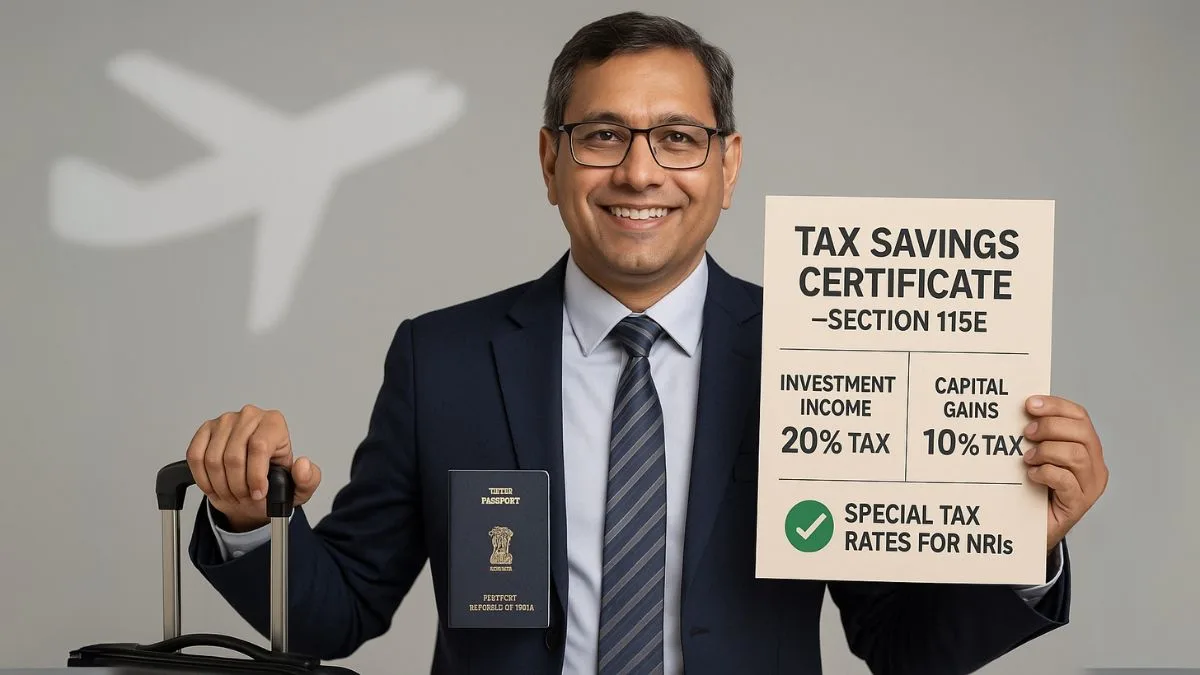
When it comes to taxation in India, Section 115E of the Income Tax Act holds significant importance, especially for non-residents earning income from Indian assets. Introduced as a beneficial provision, Section 115E of the Income Tax Act 1961 aims to provide a simplified tax structure for non-residents who invest in India & earn income in the form of investment income or long-term capital gains.
What is Section 115E of the Income Tax Act?
Section 115E deals with the tax on investment income & long-term capital gains earned by non-resident Indians (NRIs) or foreign investors. The idea is to promote foreign investment in India by offering a clear & advantageous tax regime.
As per Section 115E of the Income Tax Act 1961, if a non-resident Indian or a person of Indian origin has income that consists solely of investment income or income from the transfer of foreign exchange assets, then such income is taxed at a special flat rate."
Tax on Investment Income under Section 115E
The term ‘Investment Income’ here refers to income from securities, bonds, shares, deposits, or any other assets purchased in foreign exchange.
- This Investment Income is taxed at a concessional flat rate of 20%.
- There is no need to worry about complex slab rates or deductions.
- The simplicity is designed to attract non-residents who earn income in India through investments.
For example, if an NRI has invested in Indian bonds or shares using foreign currency & earns ₹1,00,000 as interest or dividends, then they will be taxed at 20% under Section 115E.
Tax on Long-Term Capital Gains under Section 115E
In addition to investment income, Section 115E also governs the taxation of long-term capital gains (LTCG) arising from the transfer of foreign exchange assets.
- The tax on such long-term capital gains is charged at 10% without the benefit of indexation.
- It applies only to assets purchased in convertible foreign exchange.
This includes assets such as shares of Indian companies, debentures, deposits with public companies, government securities, or other notified securities."
Who Can Avail Benefits Under Section 115E?
The following categories of taxpayers are eligible to benefit from Section 115E:
- Non-Resident Indians (NRIs)
- Persons of Indian Origin (PIOs)
- Indian citizens earning a Total Income over ₹15 lakh, who qualify as “not ordinarily resident” for tax purposes.
The provision is particularly advantageous for NRIs looking to maintain their financial ties with India while living abroad.
Key Features of Section 115E
- Flat Tax Rate: The Investment Income is taxed at 20%, while long-term capital gains are taxed at 10%.
- Foreign Exchange Asset: The income should arise from assets purchased with foreign currency.
- No Need for Deductions: Income taxed under Section 115E is not eligible for common deductions like those under Section 80C.
What is a Foreign Exchange Asset?
A Foreign Exchange Asset is an asset acquired by an NRI using foreign exchange. It could be:
- Shares in Indian companies
- Debentures of Indian public limited companies
- Deposits with Indian public limited companies
- Central government securities
The income generated from foreign exchange assets is precisely what Section 115E is concerned with.
Tax Filing and Compliance
Although Section 115E provides a simplified tax structure, NRIs still need to:
- File their Income Tax Return (ITR) in India.
- Ensure correct reporting of investment income & capital gains.
- Pay the applicable taxes within the due dates to avoid penalties.
Non-compliance can attract additional interest & penalties under other provisions of the Income Tax Act 1961.
Why Section 115E Matters
For NRIs, the Indian taxation system can appear complicated at first glance. But provisions like Section 115E of the Income Tax Act make it considerably easier to invest & grow wealth in India without falling into complicated tax traps. The flat tax rates, coupled with minimal paperwork, give investors peace of mind.
Moreover, since Investment Income is taxed at 20% & LTCG at 10%, it allows for better planning & management of funds.
Confused about how Section 115E applies to your foreign income? Let the experts at Callmyca.com simplify your tax journey—start now & save smart!











